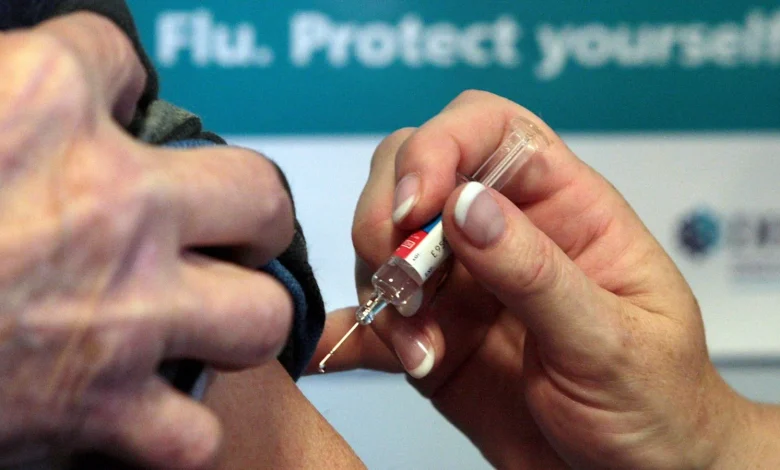NHS issues ‘jab SOS’ as experts warn thousands could die from flu this winter

Thousands of people could die from flu this winter, experts have warned, as the UK braces for a high level of infection.
NHS leaders issued a “flu jab SOS” on Thursday, urging members of the public to get protected.
Figures show the number of deaths from flu more than doubled last winter, but this year could be even worse.
Data from the UK Health Security Agency (UKHSA) showed deaths from flu in the winter of 2024 to 2025 stood at 7,757 compared to 3,555 deaths the year before.
According to the UKHSA’s annual epidemiological report, this number is still lower than the 2022 to 2023 season, which stood at 15,867 deaths.
Australia, a country that is often seen as an accurate predictor of what the UK can expect, has just recorded its biggest flu season in history.
Around 2.4 million vaccination slots will be available in England next week, according to NHS England, which it said was enough to vaccinate the whole of Greater Manchester or Botswana.
Several health leaders have urged people to book a vaccination appointment to help lower the number of potential deaths and ease the pressure on hospitals over the winter.
Sir Jim Mackey, NHS chief executive, said there was “no doubt” this winter will be “one of the toughest our staff have ever faced”.
He added: “Since stepping into this role, the thought of a long, drawn-out flu season has kept me awake at night. And, unfortunately, it looks like that fear is becoming reality.
“From December through to March, our hospitals will be at capacity.
“And while our teams should be focused on preparing for the peak of winter, many are also having to plan around strike action — adding even more pressure at a time when every pair of hands counts.”
However, Sir Jim added he was confident in the NHS’s preparations for winter.
Flu symptoms include a high temperature, cough and feeling tired or achy. Credit: iStock
Chief nursing officer at St George’s, Epsom and St Helier hospitals, Elaine Clancy, said the NHS trust has made preparations for a bad winter.
She said: “Last flu season was particularly nasty and we’re very concerned that this year could be even worse – we’re preparing for a spike of flu onto our wards.”
Ms Clancy warned the flu vaccine can take “up to 14 days to fully kick in” and called for people to book their jabs urgently.
Deaths from flu in England stood at 7,757 last winter – compared to 3,555 in 2023 – with child deaths rising from 34 to 53, according to data from the UK Health Security Agency (UKHSA).
Dr Suzanna McDonald, national lead for the influenza programme at UKHSA, said: “Flu has hit early this year and will only spread in the coming weeks.”
She urged people to be aware of flu symptoms, as many may mistake their illness for the common cold.
“If you get flu, it is nasty and for some more vulnerable it can be deadly. If you’re eligible it is because you are at greater risk.”
Amy Clare, 34, from Sutton, described feeling “devastated” when her five-week-old son, Jonah, became seriously unwell with flu, and was forced to spend Christmas at Epsom Hospital in 2022.
Subscribe free to our weekly newsletter for exclusive and original coverage from ITV News. Direct to your inbox every Friday morning.
She said: “When the doctor told us we’d be spending Christmas in hospital, I was devastated. But he was in the best place to get better.
“The care we received from the moment we walked into A&E was fantastic.”
Duncan Burton, chief nursing officer for England, called for an urgent SOS for jabs this year and said the 2.4 million appointments being rolled out next week will help “stamp out this early wave of flu cases and help shield themselves ahead of winter”.
He added: “The vaccine is proven to be safe and help prevent those at risk from getting seriously ill and even hospitalised from flu – so please check your local pharmacy, book an appointment online or by calling 119, or speak to your GP practice today about your winter flu vaccine.”
Flu vaccines are available for those aged 65 and over, as well as under-65s in clinical risk groups.
Pregnant women, care home residents and carers, those in close contact with immunosuppressed people, social care workers, and children are among those eligible for a flu vaccine.
Want a quick and expert briefing on the biggest news stories? Listen to our latest podcasts to find out What You Need To Know…





